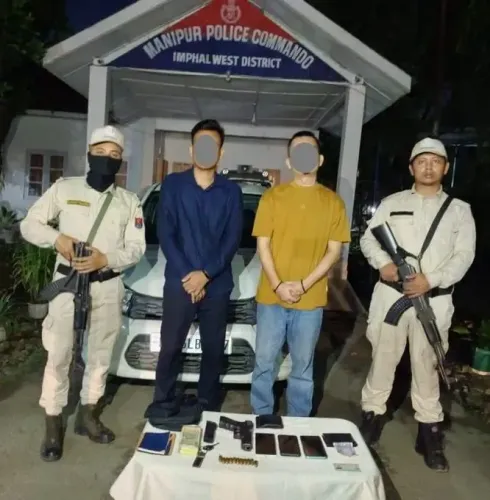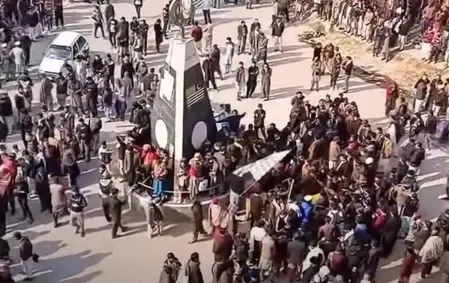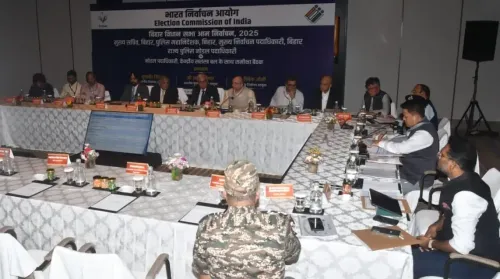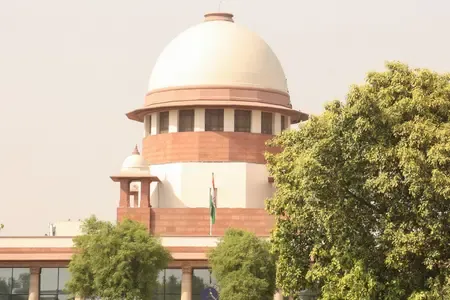What Happened to the Student in Bangladesh for Criticizing the July Uprising?
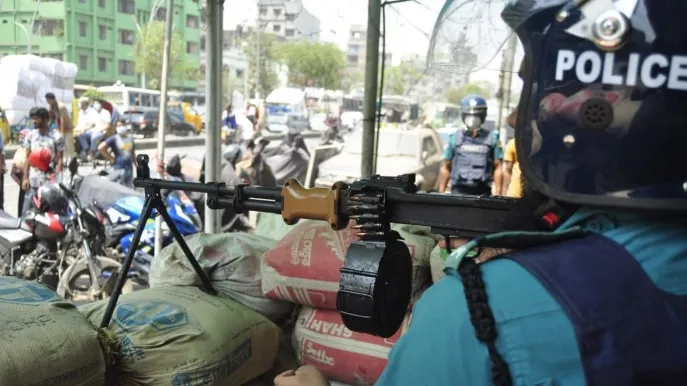
Synopsis
Key Takeaways
- A madrasa student was assaulted for criticizing the July uprising in Bangladesh.
- The incident raises serious questions about freedom of speech in the country.
- Local authorities confirmed the student's imprisonment following public outcry.
- Activists are increasingly concerned about the suppression of dissent.
- The political climate in Bangladesh remains tense and volatile.
Dhaka, July 3 (NationPress) A madrasa student in Bangladesh faced violence for a social media post criticizing the 2024 July uprising. In Tongi, located in the Gazipur district near Dhaka, locals and fellow students forcibly cut his hair before turning him over to the police, as reported by local media on Thursday.
Officer-in-Charge (OC) Iskander Habibur Rahman from Tongi West Police Station confirmed the incident, stating that the student allegedly made an inappropriate comment on Facebook concerning the July uprising.
According to Rahman, the event transpired on the grounds of the Tongi branch of Tamirul Millat Kamil Madrasa on Tuesday evening. A case has been filed against the student as well.
Following the incident, the police presented the student in front of a local court on Wednesday afternoon, which subsequently ordered his imprisonment.
"We have transferred him to the Tongi West Police Station in response to public demands and safety concerns," remarked Saidul Islam, General Secretary of the madrasa's student council, while speaking to local media.
"Given the sensitive nature of the matter, we chose to hand him over to the police to uphold law and order. The police will proceed with appropriate legal actions," explained madrasa Principal Hifazur Rahman.
In the meantime, a collective of 88 expatriate journalists, writers, researchers, and cultural and rights activists have expressed serious concerns about the "ongoing torture of journalists and suppression of free speech" in Bangladesh, particularly under the interim government led by Muhammad Yunus.
In a unified statement, the group accused the Yunus administration of attempting to stifle freedom of speech by "enforcing various official and unofficial controls" over both mass media and social media, labeling it as "shameful and repulsive".
Last year, commencing from July 1, Bangladesh experienced a tumultuous student movement advocating for reforms to the quota system in government employment, which resulted in the ousting of the democratically elected government of former Prime Minister Sheikh Hasina.
The abrupt departure of Hasina last August, following intense student protests, was widely perceived as a significant blow to the country’s democratic framework, reportedly initiating a phase of severe human rights violations and censorship of free speech under the Yunus-led interim government.

